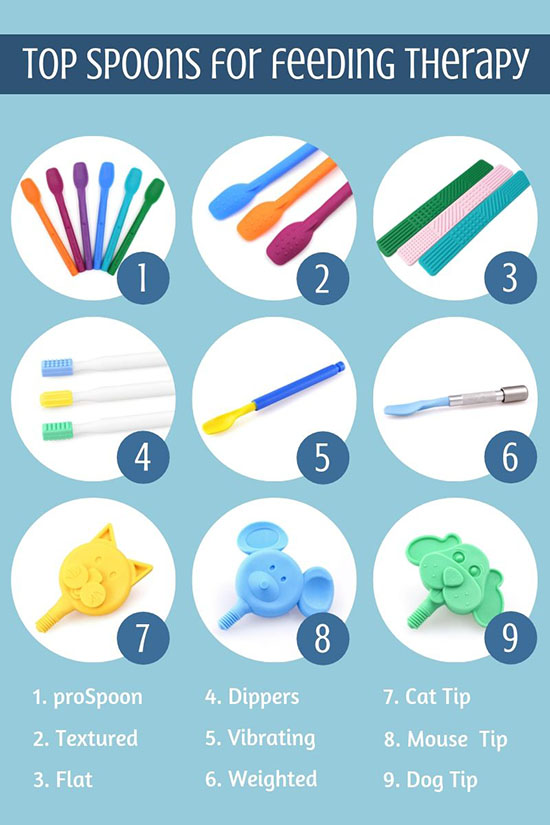Food Therapist Farmingdale: Supporting Favorable Eating Habits
Wiki Article
Navigating the Course to Successful Feeding: Ingenious Approaches and Interventions for Reliable Feeding Therapy
Are you having a hard time to locate efficient approaches and treatments for successful feeding therapy? Look no additionally. This post will certainly assist you with the course to success, offering cutting-edge strategies to analyze feeding obstacles and established achievable goals. With evidence-based strategies, you'll learn how to deal with sensory handling concerns and utilize assistive technology and adaptive tools. Plus, we'll reveal you the value of collaborating with families and caregivers for optimal feeding outcomes. Prepare yourself to navigate the course to effective feeding!Assessing Feeding Obstacles and Identifying Objectives
You ought to begin by analyzing your kid's feeding challenges and identifying specific goals for their treatment. It's vital to communicate these goals with your child's feeding specialist so they can customize the treatment sessions to resolve these certain obstacles. By evaluating your child's feeding challenges and establishing goals, you are taking the very first action towards aiding them develop effective feeding abilities.Applying Evidence-Based Approaches for Feeding Treatment
Executing evidence-based strategies for feeding therapy can lead to favorable outcomes for children. When you include these techniques into your child's therapy strategy, you are making sure that the interventions utilized are supported by clinical research and have actually been verified reliable. This method enhances the likelihood of success and helps attend to the particular feeding difficulties your youngster may be experiencing.By following evidence-based approaches, you can supply your youngster with the most effective feasible treatment and support. These methods might include utilizing a selection of sensory experiences throughout nourishments, such as discovering different structures and tastes, to encourage approval of brand-new foods. Furthermore, applying habits alteration techniques can assist address picky consuming routines and advertise much healthier eating patterns.
An additional crucial aspect of evidence-based feeding treatment is involving the family members in the therapy procedure. By providing education and learning and assistance to caregivers and parents, they can play an active duty in aiding their kid overcome feeding difficulties. This collaborative strategy boosts the efficiency of therapy and advertises lasting positive modifications in your kid's eating practices.

Attending To Sensory Processing Issues in Feeding Therapy
Dealing with sensory handling problems in feeding treatment can be difficult, yet it is vital for promoting a positive eating experience for kids. When you encounter a child with sensory processing troubles throughout nourishment, it is very important to understand that their reactions to specific appearances, preferences, scents, or perhaps audios are not deliberate (food aversion therapy long island). By acknowledging and resolving these issues, you can help develop a supportive setting that encourages healthy consuming practices
This strategy permits the youngster to end up being acquainted with the food and its sensory residential properties at their very own pace. In addition, providing a selection of tastes and appearances can help desensitize their sensory system and broaden their food preferences.
Engaging the youngster in sensory play activities can also be helpful. Urge them to explore different structures, such as squishing, squeezing, or touching different food products. This can aid stabilize sensory input and reduce aversions to certain structures.
An additional crucial facet is providing a structured and tranquil eating atmosphere. Reduce diversions, such as intense lights or loud sounds, which can bewilder their detects and impede their capacity to concentrate on consuming. Developing a foreseeable routine and utilizing aesthetic schedules can also assist the child feel more safe and in control during mealtime.

Utilizing Assistive Modern Technology and Adaptive Tools
Using assistive technology and adaptive tools can substantially enhance the feeding experience for youngsters with sensory processing difficulties. Mealtime can be frustrating and tough when you have trouble with sensory processing. With the right tools, you can make it a much more successful and satisfying experience.One alternative is making use of specialized plates and utensils developed to fit your needs. These utensils may have textured takes care of or a larger hold, making them simpler to manipulate and hold. Plates with separated areas can help separate various foods and stop them from touching, which can be a resource of pain for some youngsters.
Along with specialized plates and utensils, there are likewise assistive devices that can be utilized during feeding. A heavy vest or lap pad can give deep pressure input, aiding to calm and manage your sensory system. A vibrating tooth brush or chewable fashion jewelry can offer dental sensory excitement, making the act of consuming extra satisfying.
Modern technology can additionally contribute in enhancing the feeding experience. There are devices and applications readily available that can provide aesthetic or auditory hints, such as timers or More Info motivates, to help you remain focused and arranged during nourishment.
Teaming Up With Family Members and Caregivers for Successful Feeding Results
When teaming up with families and caretakers, you can work with each other to develop a helpful and nurturing environment for effective feeding results. By including households and caregivers in the feeding therapy process, you can get useful insights into the youngster's feeding routines, obstacles, and choices. feeding therapy long island. This collaboration permits for an alternative method Read Full Report to feeding treatment, resolving not only the physical aspects yet likewise the psychological and psychological elements that might influence a youngster's feeding capabilitiesOne key facet of working together with caretakers and households is providing education and learning and training. By equipping them with knowledge and skills, they can proactively participate in the feeding treatment procedure and sustain the child's development outside of therapy sessions. This can include instructing them feeding strategies, methods for taking care of mealtime behaviors, and understanding the value of consistency and routine in developing healthy eating behaviors.
Moreover, involving households and caretakers in personal goal setting and therapy preparation guarantees that their viewpoints and goals for the child are considered. By collaborating, you can establish achievable and reasonable goals that straighten with the family members's priorities and values - food therapist farmingdale. This joint technique fosters a feeling of ownership and empowerment, developing a strong structure for effective feeding results
Additionally, regular and open interaction with households and caretakers is vital for reliable cooperation. By keeping ongoing dialogue, you can resolve worries, give support, and make essential adjustments to the feeding treatment strategy as needed. This communication also enables for sharing development updates, commemorating success, and determining any type of obstacles or obstacles that may develop.

Final Thought
You have actually explored different techniques and treatments for effective feeding therapy, such as assessing difficulties, applying evidence-based strategies, attending to sensory handling concerns, and utilizing assistive innovation. Bear in Read Full Report mind to constantly stay positive and ingenious in your approach to feeding therapy.It's essential to connect these goals with your child's feeding therapist so they can tailor the therapy sessions to attend to these certain obstacles.Executing evidence-based strategies for feeding treatment can lead to favorable outcomes for children.Resolving sensory handling issues in feeding treatment can be tough, yet it is important for promoting a positive consuming experience for kids. By entailing households and caregivers in the feeding therapy process, you can gain valuable understandings into the youngster's feeding obstacles, behaviors, and preferences. By outfitting them with knowledge and skills, they can proactively take part in the feeding therapy process and support the kid's progress outside of therapy sessions.
Report this wiki page